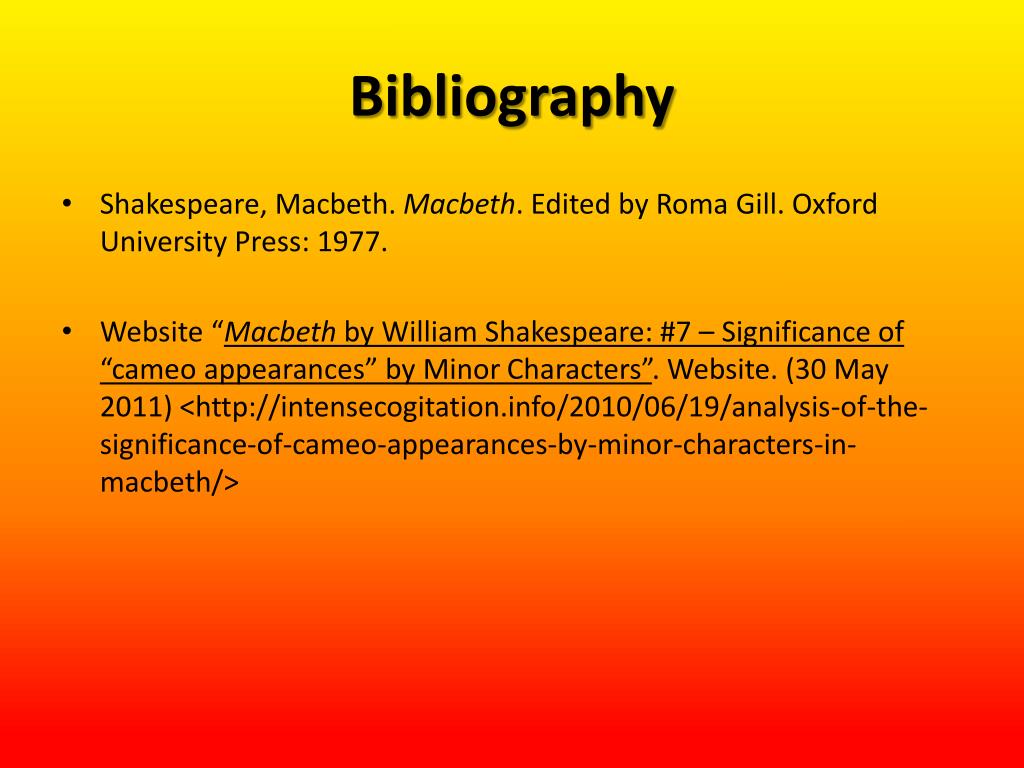

"Suggestion" means "temptation," so Macbeth is asking himself why he feels himself giving into temptation, especially a temptation that makes his heart race and his hair stand on end. Later in the scene, after he has received news that he has been named Thane of Cawdor, Macbeth asks himself "why do I yield to that suggestion / Whose horrid image doth unfix my hair / And make my seated heart knock at my ribs, / Against the use of nature?" (1.3.134-137). They are inhabitants of this world who look like they should be human, but in them the human form is unnaturally distorted. The witches are not fiends that only visit this world. He also tells them, "You should be women, / And yet your beards forbid me to interpret / That you are so" (1.3.45-47). "What are these / So wither'd and so wild in their attire, / That look not like the inhabitants o' the earth, / And yet are on't?" (1.3.39-42), wonders Banquo when he first sees them. The contrasts are just as clear and ironic.The witches show us what the unnatural looks like. Both feel the pain of loss and neither entirely understands her spouse. Like Lady Macbeth, Lady Macduff has a husband who has abandoned her with the intention to manipulate power. Though Lady Macduff is a foil to Lady Macbeth, they are not entirely opposites. How is Lady Macduff a foil to Lady Macbeth? In some cases, a subplot can be used as a foil to the main plot. In fiction or non-fiction, a foil is a character who contrasts with another character most of the time it is the protagonist, to highlight qualities of the other character. In act 1, Banquo, King Duncan, and Lady Macbeth all serve as foils for Macbeth. Macduff’s intelligence and willingness to act on what information he has gathered demonstrate his heroism and help to save Scotland from destruction.Ī foil is a character whose attributes, or characteristics, contrast with and therefore throw into relief the attributes of another character. Throughout the tragic, events of William Shakespeare’s Macbeth, Macduff serves as a heroic figure through his demonstrations of intelligence, loyalty, and righteousness. He is the one who even finds the dead body of Duncan and raises the alarm shouting: Awake, awake! Banquo and Donalbain, Malcolm, awake! Who can kill Macbeth?Īlthough the Witches tell Macbeth he cannot be killed by a man “of woman born,” Macduff reveals to Macbeth that he was delivered by what we call a Cesarean section, cut out of his mother’s body instead of being born in the more usual manner. Macduff, in the play, can be viewed as the one who upholds moral justice, goodness, and a foil to Macbeth’s evildoing. The two fight, and Macduff slays Macbeth offstage. Ross – is Lady Macbeth’s cousin but helps Macduff topple Macbeth.Īlthough Macbeth believes that he cannot be killed by any man born of a woman, he soon learns that Macduff was “from his mother’s womb / Untimely ripped” (Act V Scene /2494) - meaning that Macduff was born by caesarean section. Malcolm – Macduff is determined to make him the rightful king. Macbeth has Macduff’s family murdered because he believes Macduff is a threat to his throne.įriends, family and enemies Macduff’s friends are: The English – the army help him topple Macbeth.



Duncan, the King, rewards him by making him Thane of Cawdor. How is Macbeth shown as powerful?Īt the start of the play, Macbeth shows that he is a mighty warrior when he leads the Scottish troops to victory over an invading force. In the same scene Duncan refers to Macbeth as “Valiant cousin” the word valiant means similar things to the word brave but it also suggests that he is fighting for good. The first time we see how other people view Macbeth is in act 1 scene 2, the general feeling in that scene is that Macbeth is a noble warrior. Macbeth is a brave soldier and a powerful man, but he is not a virtuous one. Macbeth is a Scottish general and the thane of Glamis who is led to wicked thoughts by the prophecies of the three witches, especially after their prophecy that he will be made thane of Cawdor comes true. Macbeth is spurred by his ambition and his wife, and he murders King Duncan then accedes to the throne. Three witches tell Macbeth that he will become King of Scotland. In the play, Macbeth is a Scottish general who has been fighting for King Duncan.


 0 kommentar(er)
0 kommentar(er)
